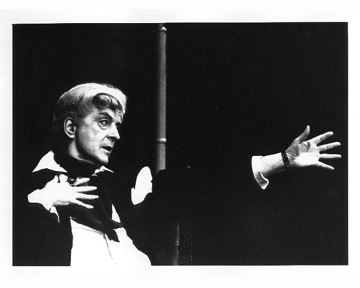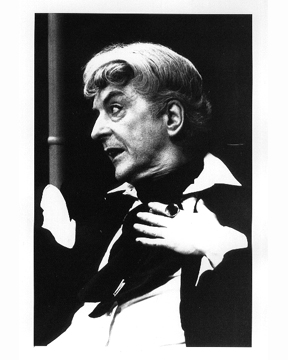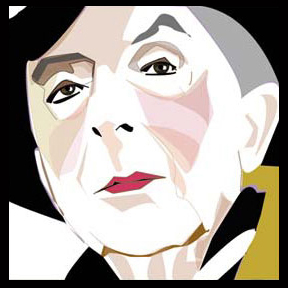 From the dawn of my history I was so disfigured by the characteristics of a certain kind of homosexual person that, when I grew up, I realized that I could not ignore my predicament. The way in which I chose to deal with it would now be called existentialist. Perhaps Jean-Paul Sartre would be kind enough to say that I exercised the last vestiges of my free will by swimming with the tide—but faster. In the time of which I am writing I was merely thought of as brazening it out. From the dawn of my history I was so disfigured by the characteristics of a certain kind of homosexual person that, when I grew up, I realized that I could not ignore my predicament. The way in which I chose to deal with it would now be called existentialist. Perhaps Jean-Paul Sartre would be kind enough to say that I exercised the last vestiges of my free will by swimming with the tide—but faster. In the time of which I am writing I was merely thought of as brazening it out.
I became not merely a self-confessed homosexual but a self-evident one. That is to say I put my case not only before the people who knew me but also before strangers. This was not difficult to do. I wore make up at a time when even on women eye shadow was sinful. Many a young girl in those days had to leave home and go on the streets simply in order to wear nail varnish.
As soon as I put my uniform on, the rest of my life solidified around me like a plaster cast. From that moment on, my friends were anyone who could put up with the disgrace; my occupation, any job from which I was not given the sack; my playground, any café or restaurant from which I was not barred or any street corner from which the police did not move me on. An additional restricting circumstance was that the year in which I first pointed my toes toward the outer world was 1931. The tidal wave started by the fall of Wall Street, had by the time reached London. The sky was dark with millionaires throwing themselves out of windows.
So black was the way ahead that my progress consisted of long periods of inert despondency punctuated by spasmodic lurches forward toward any small chink of light that I thought I saw. In major issues I never had any choice and therefore the word regret had in my life no application.
 As the years went by, it did not get lighter but I became accustomed to the dark. Consequently I was able to move with a little more of that freedom which T.S. Eliot says is a different kind of pain from prison. These crippling disadvantages gave my life an interest that it would otherwise never have had. To survive at all was an adventure; to reach old age was a miracle. In one respect it was a blessing. In an expanding universe, time is on the side of the outcast. Those who once inhabited the suburbs of human contempt find that without changing their address they eventually live in the metropolis. In the case this took a very long time.
As the years went by, it did not get lighter but I became accustomed to the dark. Consequently I was able to move with a little more of that freedom which T.S. Eliot says is a different kind of pain from prison. These crippling disadvantages gave my life an interest that it would otherwise never have had. To survive at all was an adventure; to reach old age was a miracle. In one respect it was a blessing. In an expanding universe, time is on the side of the outcast. Those who once inhabited the suburbs of human contempt find that without changing their address they eventually live in the metropolis. In the case this took a very long time.
In the year 1908 one of the largest meteorites the world has ever known was hurled at the earth. It missed its mark. It hit Siberia. I was born in Sutton, in Surrey.
As soon as I stepped out of my mother’s womb onto dry land, I realized that I had made a mistake—that I shouldn’t have come, but the trouble with children is that they are not returnable. I felt that the invitation had really been intended for someone else. In this I was wrong. There had been no invitation at all . . . .
|





